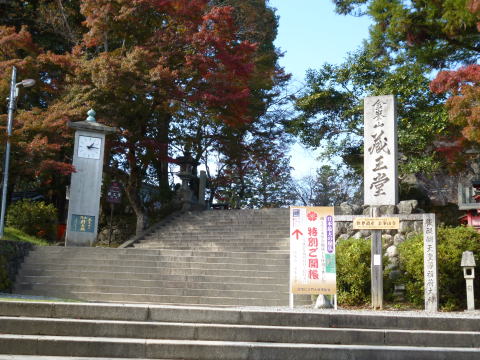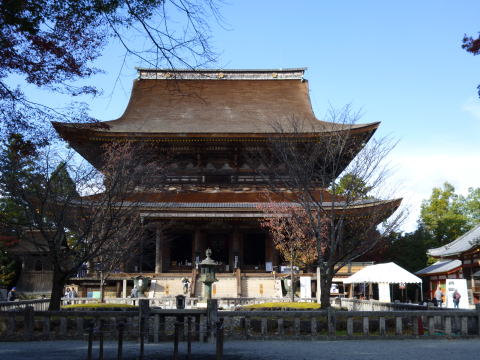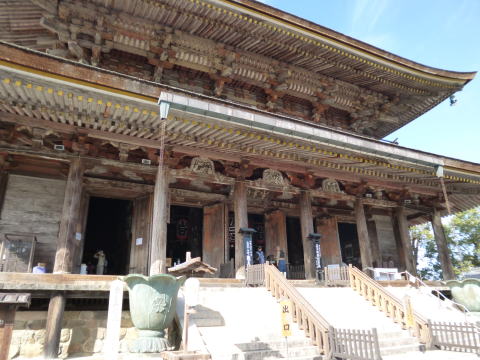![]()
![]()
Kimpusenji is a central temple for the
Shugen sect of ascetic Buddhism. Whereas Sanjozaodo, the main hall of
Ominesanji, located on Mt. Sanjogatake, 16km to the south-southwest of
Kimpusenji, was revered as a mountaintop temple for Zao Gongen, the Sangezaodo, the Hondo of Kimpusenji was revered as the mountain-base
temple for Zao Gongen.
It received great reverence as the religious center at Yoshino, the sacred
site for the Shugen sect.
In the temple compound which extends 70m east-west and 120m north-south,
the monuments including for Hondo and the Niomon still remain, and there
are underground archeological remains of the Nitemmon, the Chumon, the
Daito, the Jikido and the Kairo, which are in a good condition of preservation.
The Kimpusenji Honden, which is the main temple building fo Kimpusenji, is a 1592 reconstruction, however from historical activities it is known that the building had existed back in 1103.
As a wooden structure with height of 34m, enshrining three large statues of Zao Gongen of the Shugen sect, it projects majestic atmosphere suitable for the central temple of the Shugen sect.
On the other hand, in April, when cherry blossoms are in bloom, the traditional
ritual Hanakusempoe, in which cheery blossoms are offered to the chief
deity in prayer for the purging of human sins, is observed annually with
great enthusiasm.


